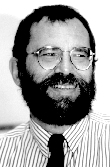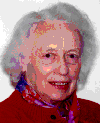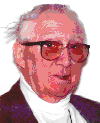Ottawa Friends active in United Nations Work
(a selection)
David Jackman
 David Jackman was born in Toronto in 1946. After high school, he went to study art at the Pratt Institute in Brooklyn. At Everdale Place in Hillsburgh, Ontario, he became involved in the free school movement.
David Jackman was born in Toronto in 1946. After high school, he went to study art at the Pratt Institute in Brooklyn. At Everdale Place in Hillsburgh, Ontario, he became involved in the free school movement.
In the late 1960s, he went to Carleton University in Ottawa to study the history of art. David first attended meeting at Ottawa Monthly Meeting in 1971. He married Pashta Marymoon, and their first daughter, Saara, was born in 1970.
When they moved to Victoria, British Columbia, David and Pashta joined the Victoria Monthly Meeting. In 1973, their son Josh was born. For the next four years, David worked with a community recycling group. In the mid 1970s, he got involved with organizing on disarmament issues, and in nonviolence training. In 1980, he and Pashta were divorced.
David served on Canadian Friends Service Committee in the 1970s and in the 1990s. During the Reagan years, when the disarmament movement rapidly expanded, he worked with a city-wide peace group which organized an annual peace walk which started in the mid 80s and continues today in Victoria.
He married Sylvia McMechan in 1982. In 1984, they moved back to Ontario and David enrolled at the University of Waterloo. Their daughter Anna was born in 1984. David studied disarmament and conflict resolution in the Peace and Conflict Studies Program at the University of Waterloo's Conrad Grebel College. He worked for Project Ploughshares, the ecumenical disarmament group, from 1984 until 1994.
In 1994, he became Associate Representative at the Quaker United Nations Office in New York City. Steve Collett, of Ohio and Norway, is the Representative. Brett Collett of Norway, who is married to Steve, is the other Associate Representative. QUNO staff often work behind the scenes, where communication and mediation are necessary skills.
�I felt I could do the job, because of my nonviolence training, my specialization for almost 20 years in work related to disarmament, and my skills in communication and mediation work," he said.
Janet Martin
 Janet Martin was born in Birmingham in 1912. She was descended from Huguenots on her mother's side of the family. She went to a Quaker meeting for the first time when she was 25, after having been taught history by a Quaker writer named Francesca M. Wilson in an Anglican school.
Janet Martin was born in Birmingham in 1912. She was descended from Huguenots on her mother's side of the family. She went to a Quaker meeting for the first time when she was 25, after having been taught history by a Quaker writer named Francesca M. Wilson in an Anglican school.
Janet went to Birmingham University from 1930 to 1934, and then went to Cambridge from 1934 to 1935. She was teaching in Birmingham when she met Philip at the Peace Pledge Union in 1940.
�Philip and I were involved in the Pacifist Service Unit. We sent out canteens and first aid teams after air raids."
She and Philip were married in her meeting, Bull Street Meeting, in July, 1944. Their adopted son Doug was born in 1949 and their own daughter Barbara in 1950. They followed Philip to Montreal in 1954, and settled in Ottawa in 1962.
In 1968, when the children were grown, Janet again taught, this time as a "visiting teacher". The Ottawa School Board had a program for children who were out of school for illness or recovery, so visiting teachers went round to children once a week. She finished teaching there in 1977. At Centennial School, she taught disabled children in small classes, so each child could have the attention needed.
In the summers, from 1966 to 1971, she and Philip were wardens on Grindstone Island. Then from 1977 to 1979 they worked as Quaker representatives at the Quaker United Nations Office in Geneva.
"The thing I enjoyed most was going to the League of Red Cross Societies, once a month. It was called a disaster meeting, where a group of us met, from churches and organizations, including Red Crescent Societies from Muslim countries."
"We heard from different people who had just come from scenes of disasters and they came and reported on what they could do and what they needed. Some had just got off the plane, rushed in, and told us what had gone wrong and what could be done."
At QUNO Geneva, the physical side of their hospitality was almost as important as the diplomatic side.
"We put up 100 people travelling on Quaker or related business in our two years there. A lot of people came from organizations without much money, and Geneva was an expensive city, even then."
Philip L. Martin
 Philip L. Martin was born in Newton in Makerfield, near Liverpool, England in 1917. He attended London University from 1935 to 1939. While teaching in Birmingham, he first attended a Quaker meeting at Selly Oak Meeting, which had invited non-Quaker conscientious objectors to a special meeting, to let them know they had support from Quakers.
Philip L. Martin was born in Newton in Makerfield, near Liverpool, England in 1917. He attended London University from 1935 to 1939. While teaching in Birmingham, he first attended a Quaker meeting at Selly Oak Meeting, which had invited non-Quaker conscientious objectors to a special meeting, to let them know they had support from Quakers.
In 1939, at a house run by the Peace Pledge Union in Birmingham, he met his wife Janet. He went to Oxford from 1941 to 1944. In July, 1944 he and Janet were married.
Philip joined Bromley Preparative Meeting in 1946, when he and Janet were living on the outskirts of London. Philip taught secondary school in Birmingham and London. Their adopted son Doug was born in 1949 and their daughter Barbara in 1950 In 1953, he came to Canada, and taught in Montreal until 1962. That year, he joined the staff of Bell High School in Ottawa, teaching Latin and French from 1962 until his retirement in 1977.
From 1966 to 1971, the Martins acted as wardens of Grindstone Island, a peace centre founded by the Canadian Friends Service Committee on an island in Big Rideau Lake about 100 km south of Ottawa. Their task on the island was to co-ordinate the physical facility and the programs.
"We would organize conferences for diplomats from the embassies in Ottawa, and then follow them up with dinners at restaurants in Ottawa afterward."
Philip told of a memorable visit from two members of the Royal Canadian Mounted Police, in the years when the RCMP had the mandate for security during the Cold War. Philip agreed to the interview on condition he tape it. He gave one copy to the Mounties who later returned it - erased.
"They sent two rather green young people to visit us, and we mentioned that we had a dinner party at our house, and invited two Americans and two Soviets. One of the Mounties asked, 'How on earth did they get on?'. And we said, 'Well, they�re civilized people, and they�re diplomats, so of course they were able to get on.' "
In 1977, he and Janet were asked to work in Geneva, replacing Duncan and Katharine Wood, who had wanted to retire after 25 years at the Quaker United Nations Office in Geneva, Switzerland.
During their years at Geneva, they worked on disarmament, development and human rights with Quaker staffer Sylvain Minault, and Quaker volunteers such as Miriam Levering during the Law of the Sea conferences.
The Third World countries at the UN tried hard during the 1970s to set up what they called the Common Fund. This fund would help countries dependent on single commodity exports by collecting a surplus from these countries when prices of cocoa or copper were high, and paying it back to them when the prices slumped.
"In 1978, we at Quaker House were asked to arrange a meeting one Saturday morning," Philip recalled. "The delegates knew the discussion would be off the record, and the U.S. leader began by making it clear that the delegates would be speaking as private individuals, not as delegates. About 25 delegates turned up and we supplied lunch and coffee. In the end, the negotiations failed when the Americans refused to agree. They took the market forces as sacrosanct, no matter what their social consequences."
 Philip L. Martin was born in Newton in Makerfield, near Liverpool, England in 1917. He attended London University from 1935 to 1939. While teaching in Birmingham, he first attended a Quaker meeting at Selly Oak Meeting, which had invited non-Quaker conscientious objectors to a special meeting, to let them know they had support from Quakers.
Philip L. Martin was born in Newton in Makerfield, near Liverpool, England in 1917. He attended London University from 1935 to 1939. While teaching in Birmingham, he first attended a Quaker meeting at Selly Oak Meeting, which had invited non-Quaker conscientious objectors to a special meeting, to let them know they had support from Quakers.  David Jackman was born in Toronto in 1946. After high school, he went to study art at the Pratt Institute in Brooklyn. At Everdale Place in Hillsburgh, Ontario, he became involved in the free school movement.
David Jackman was born in Toronto in 1946. After high school, he went to study art at the Pratt Institute in Brooklyn. At Everdale Place in Hillsburgh, Ontario, he became involved in the free school movement.  Janet Martin was born in Birmingham in 1912. She was descended from Huguenots on her mother's side of the family. She went to a Quaker meeting for the first time when she was 25, after having been taught history by a Quaker writer named Francesca M. Wilson in an Anglican school.
Janet Martin was born in Birmingham in 1912. She was descended from Huguenots on her mother's side of the family. She went to a Quaker meeting for the first time when she was 25, after having been taught history by a Quaker writer named Francesca M. Wilson in an Anglican school.